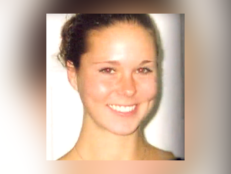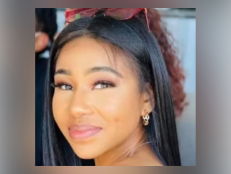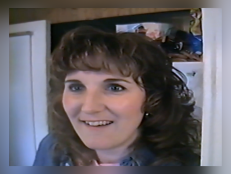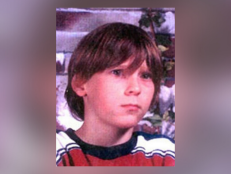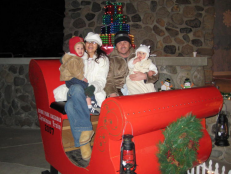The Search For Missing Native Mom Emmilee Risling Continues
The indigenous woman was last seen crossing a bridge in California’s Yurok Reservation in October 2021 and hasn’t been heard from since.
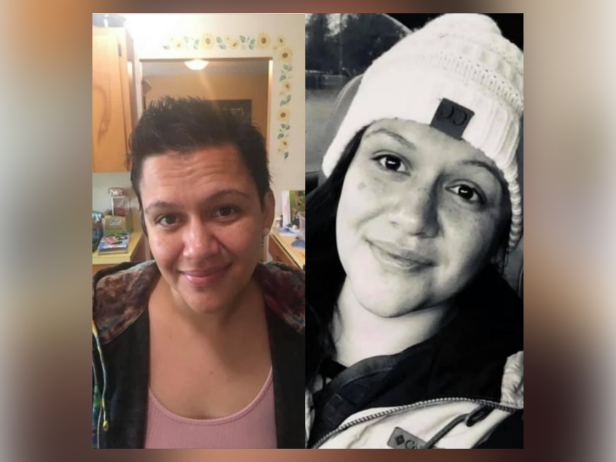
Yurok Tribe via Facebook
Emmilee Risling, 33, was last seen crossing a bridge in a remote area of California’s Yurok Reservation in October of 2021. The bridge is near a place marked End of Road where old pavement ends and a thick wooded area begins. KLCC reported that her disappearance is “one of five cases in 18 months of Native women gone missing or found murdered between California's Bay Area and the Oregon border.”
Risling is a mother of two, a University of Oregon graduate, and an accomplished tribal dancer. In the months before her disappearance, Risling had been reportedly suffering with mental health issues. An article by The Associated Press revealed that she had been behaving erratically during this time, such as wandering around naked on two reservations and a small town in Northern California’s Lost Coast.
Shortly before her disappearance, Risling was arrested for arson after she started a fire in a cemetery. Her concerned family hoped that this incident would get law enforcement to ensure she got the mental health services she needed that were scarce in the area. Unfortunately, she was instead released despite what the Associated Press called “the pleas of loved ones and a tribal police chief.”
The Risling family is doing all they can to find Emmilee and spread awareness of her disappearance. Emmilee’s father Gary Risling granted news stations permission to use his daughter’s photos in hopes that someone may recognize her. He told KLCC, “Whatever it takes to help get the word out. We want the word to spread far and wide about the challenges in helping investigate and solve these cases.”
Dr. Blythe K. George, Assistant Professor of Sociology at University of California - Merced, grew up with Risling. George told Kym Kemp of Redheaded Blackbelt that a big part of the reason that many native women’s cases remain unsolved is confusion with overlapping jurisdictions. She said, “When someone is taken, it is more often a finger pointing game of whose job it isn’t rather than someone taking the lead and getting the justice for the family.”
George added, “She deserves to come home. Her family doesn’t deserve to not know what happened.”
Risling's sister, Mary, told KLCC, “Everyone wants her home. Everyone who my sister touched, misses herand wants to see her back with her children.”
Due to renewed interest in the case, there was a new search for Risling from April 29 to May 1. Yurok Tribal Police Chief Greg O’Rourke shared that the Jon Francis Foundation joined local and tribal law enforcement for an extensive three-day search. This involved 20 other searchers and 10 cadaver-sniffing dogs, according to The Washington Post. The search covered approximately half the reservation but as of now, hasn’t led to any new information in this case.
If you have information about Emmillee's whereabouts, please contact the Hoopa Tribal Police at (503) 625-4202.
Here are some important facts about the crisis facing Native American and Alaska Native communities via the Bureau of Indian Affairs:
- A 2016 study by the National Institute of Justice (NIJ) found that more than four in five American Indian and Alaska Native women (84.3 percent) have experienced violence in their lifetime, including 56.1 percent who have experienced sexual violence.
- Overall, more than 1.5 million American Indian and Alaska Native women have experienced violence in their lifetime.
- According to a 2008 report titled Violence Against American Indian and Alaska Native Women and the Criminal Justice Response: What is Known, national rates of homicide victimization against American Indian and Alaska Native women are second to those of their African American counterparts.
- The Bureau of Indian Affairs estimates there are approximately 4,200 missing and murdered cases that have gone unsolved and that approximately 1,500 American Indian and Alaska Native missing persons have been entered into the National Crime Information Center (NCIC) throughout the U.S.
- In 2016, there were 5,712 reports of missing American Indian and Alaska Native women and girls, though the US Department of Justice’s federal missing persons database, but the national information clearinghouse and resource center for missing, unidentified, and unclaimed person cases across the United States, called the National Missing and Unidentified Persons System (NamUs) only logged 116 of those cases.
How can you help? If you have information about a missing or murdered Indigenous person, you can submit your tips to the Bureau of Indian Affairs. Text BIAMMU and your tip to 847411, call 1-833-560-2065, or email OJS_MMU@bia.gov. More information at bia.gov.
![Diamond Bradley age-progressed to 23 years old [left] and Tionda Bradley age-progressed to 30 years old [right].](http://investigationdiscovery.sndimg.com/content/dam/images/investigationdiscovery/crimefeed/legacy/2022/06/ncmec-diamond-tionda-bradley-06092022.png.rend.hgtvcom.231.174.suffix/1654809053632.png)
